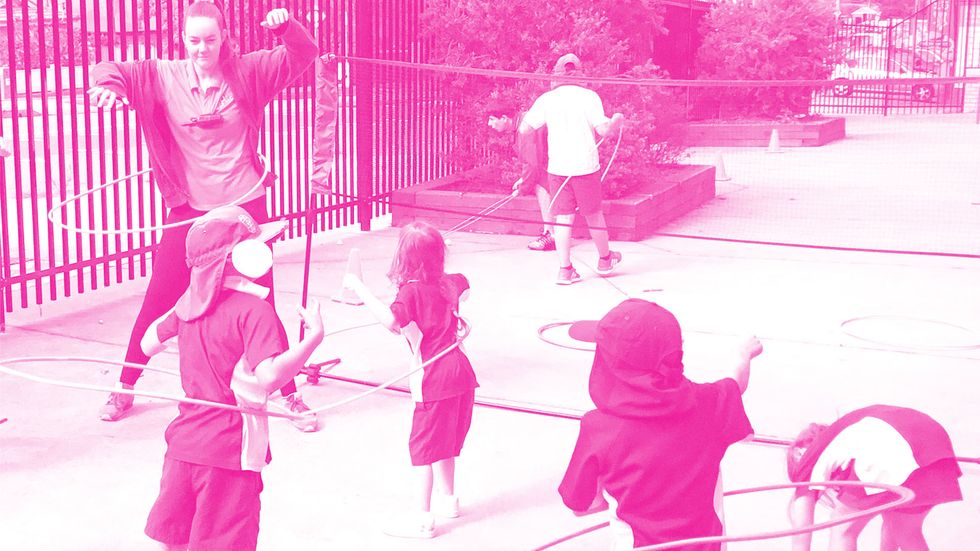In this Newsworthy series, students reflect on living in the shadow of the coronavirus.
Most afternoons I get paid to play handball, Uno and hangman, or get challenged in skipping competitions. Recently, the kids have been trying to teach me how to hula hoop. I am awful, which proves to be a great source of entertainment. This is my job, I have worked in an Outside School Hours Care (OSHC) centre for the past five years. I love it.
My work classifies as childcare, so we are technically open as long as the schools are open. On a regular day, we have anywhere from 60-100 primary school-aged kids. This week, 20 children is considered a busy day. Next week, we have four kids enrolled for the entire week.
Like everyone else in society, the kids are aware of coronavirus and they have questions. Officially, if the kids ask us questions or start to chat about COVID-19 amongst themselves, we have been instructed to change the topic. Easier said than done, especially as the situation progresses.
Last week, one kid thought it would be funny to tell everyone his brother had coronavirus. This week, the same child arrived in tears.
We have had to enforce social distancing as much as possible and stricter hygiene policies. On Monday, I sat down to read a book with one of our kindergarten kids. It was late in the afternoon and he was getting tired. As I read to him, he curled up and rested his head on my shoulder. It was adorable. How was I meant to tell that child that we really shouldn't be so close to each other?
Some of them joke about getting COVID-19. Last week, one of the kids thought it would be funny to tell everyone his brother had coronavirus. A little wink and nudge to his friend told us that he was joking. This week, the same child arrived in tears, distressed that his mother had to continue to go to work in the city when everyone is being ordered to stay home.
I am not their parent or their teacher. It is not for me to decide what to tell them about COVID-19 and the situation our world finds itself in. But, kids will be kids. They will ask questions, make jokes, and ignore social distancing measures. Then what do I do?

One of our 11-year olds is autistic. He loves planes, his favourite colour is yellow and he watches 9 News with his family every night. He is very inquisitive; his favourite sentence is a question: "But why?" He usually doesn't stop until he gets an answer. We were sitting with a group of kids doing craft when he said to me, "9 News won't stop talking about the coronavirus. Why do they keep talking about it?" He refused my attempts to change the topic and kept asking until I gave him a proper answer. I told him that it was their job to talk about important things and COVID-19 is important. Before he could "but why" me again, I turned his attention back to his craft, asking what he was making and if he needed more yellow beads.
As the COVID-19 pandemic has spread, my work has proved to be a very necessary form of distraction. It is three hours a day where my biggest concerns are helping a child finish colouring in a unicorn, threading yellow beads or figuring how on earth to keep a hula hoop spinning around my hips. No constant news reports. No social media hysteria. No stressing about Centrelink applications.
That "necessary distraction" began a slow fade on Wednesday. With the number of children attending school decreasing daily, and many parents working from home, there is no longer a demand for our service. Arriving for the afternoon shift, my boss told us to just sit and chat rather than get started with our normal set up routine. It is likely, she said, that come Monday, we will all be stood down indefinitely.
* Podcast by Deanna Ruseska, Anna Nash and Chantale Symonds, from audio via Blackboard Collaborate.
Danielle is a Media (Communications and Journalism) and International Studies graduate from UNSW (2015-2019).



Cultural ping pong: Dancing on the edge of two worlds